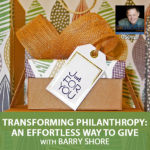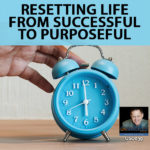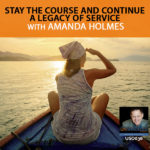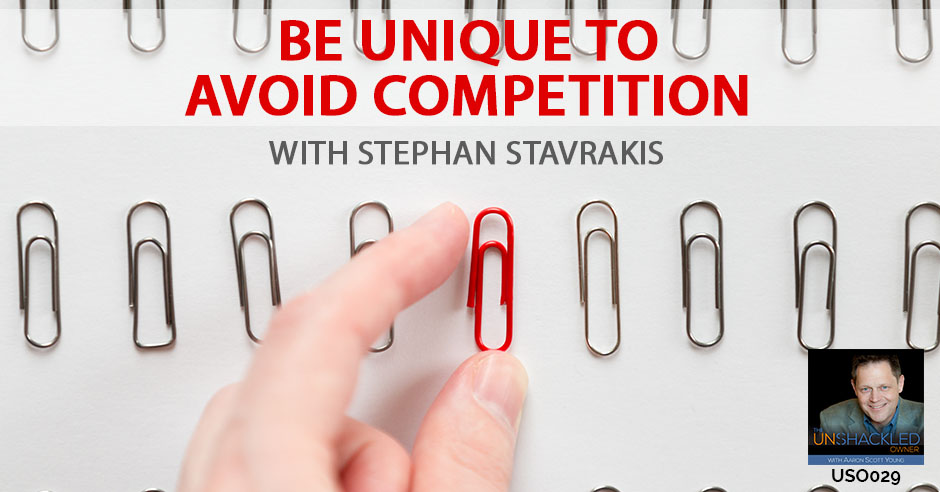
It’s always great to be here with you because I know that what you’re trying to do is figure out how can you improve your business. How can you improve your life? How can you build a business that works harder for you than you have to work for it? That’s what this podcast is all about. It’s giving you your life, your time back to you. It’s about giving you the money that you want to live. It’s about giving you the life that you want to live. What we do here, either it’s a monologue from me or I bring in a great guest, is to talk about how you can improve your life even more. How you can get those insights into yourself and into your business so that you get the edge over the competition. You have the greater likelihood of success.
I’m going to say this for the first time today because of the guest that I have on with me. He and I were talking. We came up with a way to define what I’m working on here with this whole Unshackled Owner program: with the podcast, the classes, the website, the speaking, the radio show. All of it is this: There’s a tremendous amount of companies out there that fail. There’s tremendous failure. There’s a high rate of 80% of first time companies fail. Even for people who have been doing this for a while, a clear 50% of those businesses will fail in the first five years. That’s a lot of suffering. That’s a lot of wealth and capital down the drain. There’s a lot of frustration.
Small business is so critical to our economy, so critical to our community, so critical to successful families. I’ve just decided that my job with Unshackled Owner is to eradicate this idea that 50% of the companies are going to fail in five years. There’s no reason for it. When you learn the right steps, the right formula, you don’t have to be one of those statistics. We want to end this failure rate by giving people the tools they need to be successful and to progress and grow their companies and build something that will not only support their life and their family, but something they can sell and can be a benefit to other people in the future. This idea and this thinking really became crystalized in talking to today’s guest.
Listen To The Episode Here
Be Unique To Avoid Competition with Stephan Stavrakis
I’m very excited to have this man. He’s a new friend. He’s a brilliant guy. His name is Stephan Stavrakis. I just have had the best time getting to know him. He was introduced to me by a mutual friend. Somebody that I have a lot of respect for who’s a client of ours, but is also somebody that I’ve learned from. When I got to meet Stephan, I knew right away there was a great opportunity for a long-term friendship and a relationship here. He runs a company that he started. It’s called 3D Thinking and Training. When I said, “How would you explain exactly what 3D Thinking and Training is all about?” He said, “What I do is I help people figure out how they can differentiate themselves from the crowd so that they have no competition.” It’s a great idea. This is something we need to know. I’ve read a book about it in the past but now we have actually an expert who’s going to work with us to talk about how can we have no competition. What a great idea. Stephan, it’s great to have you here on the program. Welcome.
Thank you so much. It’s great to be here.
Before we go into 3D Thinking and Training, let’s go backward in time. First of all, I know you live in Canada but you’ve got a very Greek name. Were you born and raised in Canada? Where did you come from?
I was born and raised in Canada until I was about seven years old or so, and then I lived in Greece for about six years as well. I was born and raised in Vancouver, BC. I went to Greece when my dad wanted to run a restaurant out there. We went to school out there a little bit too. I have a little bit of Greek and a little bit of Canadian.
You’ve spent the bulk of your life and home base has been British Columbia?
Absolutely, I haven’t come out of British Columbia now.
It’s a beautiful place. I had an office up there in Vancouver. If you’ve never been to Vancouver, British Columbia, unless you’re a skier, you don’t know need to go up in the dead of winter but the rest of the year, it’s one of the most fabulous cities in North America and very underrated. I think most people know about Montreal. They know about Toronto. If you’re American, you know about the other cities here in the United States. If you’ve never been to Vancouver, British Columbia and the surrounding towns around that Metropolitan area, what a phenomenally beautiful place; you must go visit there. Even when the weather is bad, they have this whole tunnel system so you can go all around downtown and go shopping and go to fantastic restaurants. It’s a diverse community. It’s got a long history. You’ve got to go see it if you’ve never been there. What’s your favorite thing about living in the Vancouver area?
I think my favorite living in this area is the fact that you can go water skiing and you can go snow skiing in the same day. I think it’s only one of the cities in the world that you could actually pull that off. It’s beautiful out here, talk about scenery and drive. I ride a motorcycle. Out here, when it’s sunny, it is literally one of the most beautiful places in the world. I’ve been to quite a few places and this is home base, it’s amazing.
Living in Portland, it’s not that different than living in Vancouver. People say, “How do you handle the rain?” I’m like, “Sure it rains or it snows but we have four seasons.” The bulk of the year and like you said, when it’s sunny, you just can’t beat it. You can’t beat these mountains. You just can’t beat it. It’s a phenomenal weather, phenomenal beauty, phenomenal people, close to the ocean, close to the mountains. You have all that water up there. I love going out amongst the islands and so on as you get up to desolation sound. It’s just phenomenal. Anyway, enough about the travel. I just love where you live. You grew up there, you spent a little time in Greece, but then did you go to college? Did you not go to college? What was your education just in a nutshell?

Be Unique: I always loved computers and I loved systems and I love how they work.
I went to a place called CompuCollege out here. It’s a computer college. I trained as a computer programmer and systems analyst. One of these things when you’re growing up, you find out something that you really love to do. I always loved computers and I loved systems and I love how they work. I ended up taking those courses and getting a couple of diplomas in programming and systems analysis. If you were to think about an official education, that’s what I did with that. On the side of that, I’ve always been an entrepreneur in a sense because I’ve been helping my dad run his restaurants. We’re Greek, so we have to own a restaurant, at least one. I got a little bit of systems and a little bit of entrepreneurial experience through restaurant building.
You’ve got this technical education and you’re helping out with the restaurant and then something happens though, because the business that you’re in right now is a long way. Maybe it could be reprogramming somebody but from being an engineer, techno, nerd kind of guy, this geek that would be working on computers all day, you somehow got involved in speaking. You’ve been a very successful speaker on big stages. For twenty years, you’ve been helping people with this whole 3D Thinking and Training idea. How did you make the transition? What switched in your mind to go from this traditional working with computers to becoming a teacher/trainer/speaker all of over the world?
I started working with some companies out here. My last corporate gig was a local insurance company. I developed a system that helped save that company about $5 million a year in infrastructure cost for the rest of the life of the company. It was an exciting time, we did it really quick. We did it faster than we thought that we could. Let me just back up a little bit. I’m Greek so I was brought up Greek Orthodox. What happened is along parallel of going to school in college and going through these jobs and stuff, I was questioning my religion, if you will. What I decided to do is I decided to start doing some personal development work. I went through all the processes of trying to figure out what is it about life that I can grab on to and be the best me without just relying on religion the way that my mom was forcing me to do. I said, “I’m going to denounce my religion,” and I did at that time. I denounced my religion and I said, “I’m go and figure out how the brain works.” The brain has to work like computer systems and stuff. It took a whole bunch of NLP types of trainings.
What’s NLP?
Neuro-Linguistic Programming.
What’s the idea behind Neuro-Linguistic Programming?
The idea behind Neuro-Linguistic Programming is a set of techniques that actually were modeled from excellence in behavior. For example, they would model Virginia Satir who was one of the world’s foremost family therapist. They modeled Milton Erickson, the Father of Modern Hypnosis. What they did is they came out with a whole bunch of different techniques on how they communicated to people and how those people communicated within themselves. Basically, you could think about it in terms of a framework of how the brain works internally and how we communicate. It’s a very powerful lifestyle. I started taking those trainings on because I really wanted to know what was the meaning of life in the process of denouncing my religion. This was running parallel alongside of me going to school and all that kind of stuff. What ended up happening is after I finished that job, I had done enough training to realize that I wasn’t actually living up to my potential. I started going down this path where I said, “I love all these computer stuff but this is not me.”
As soon as we have done that project, I just up and left. It was a very stable job. I was actually in the union. They had created a position for me. I was making probably $80,000 a year back then at that time. Everybody thought I was crazy, including my wife when I got home and I said, “We’re going to have to figure out how to pay mortgage in the next 30 days because I just quit my job.”
Isn’t it always like that? There’s got to be this moment where you go, “We’re going to make a change today.”
It was just crazy. The thing is I could not not do it. I just had to go. In the training, I had learned how the brain works and all that other kind of stuff and I really wanted to speak. As soon as I got over the shock of leaving my job and settled in after a few days, I picked up the phone and I called up all my friends and everybody that I knew. I said, “I don’t care how you do it, what you have to do, put me on stage. I need to go and speak.” They go, “What are you talking about? Are you’re going to speak?” I said, “Yeah, I’m going to speak.” “When did you know how to speak?” They didn’t know that I was doing all this training on the side and all that kind of stuff. Within two weeks, I had my first speaking gig in front of the Project Management Institute of British Columbia.
My friend introduced me to the Project Management Institute and what ended up happening is he had told them that I was a great speaker. This was really funny. The coordinator called me up and said, “I heard you’re good speaker.” I said, “Great, thank you.” She goes, “What are your topics?” I said, “Funny thing is I don’t really have any topics. I customize my topics from my audience. What is the big problem in the audience that we’re going to be speaking to?” I was quick on my feet for some reason, I guess. We created the topic at that time. It was project managers and there are 80 of them. We figured something that they would find extremely useful is how to manage their stress from a mind side perspective. That was my first gig. I got up on stage. I did my thing. It was very, very scary because I was introduced as some sort of mind expert but in actual fact, it was just all my personal training that I just wanted to put together and go and share with people.
Luckily, what ended up happening is from there, I made an offer at the end. I said, “I would love to come and work with any one of your companies doing a presentation like this or a lunch and learn or something like that.” Next thing you know, I’m off to the races. Within about three weeks’ time, I’m out doing corporate gigs and lunch and learns and getting paid to speak, even though I’ve never done it before.
You’ve made this giant change in your life and the universe was conspiring in your favor. You went from doing something completely different. Sure you were training yourself all the way along, but then you said, “I’m quitting the job. I got to get on stage.” Next thing you know, you’re being paid to speak and you’re building something. Does that get us to twenty years ago when you started 3D Thinking?
It gets us to about eighteen years ago basically. 3D Thinking started off its first iteration as 3D Thinking Incorporated. 3D Thinking and Training Limited as it is now has been around for about eighteen years or so. Two years there was the speaking gigs.
This whole idea of, “We help people differentiate themselves so they have no competition,” when did that concept crystalized for you? How did you get into that zone? Has that been just a result of eighteen years of iterating?

Be Unique: After I was doing all these events for corporations, I decided to go and do my own events.
Yes and yes. After I was doing all these events for corporations, I decided to go and do my own events. What I mean by my own events is actually putting people in front of me and doing presentations. I figured out the topic at that time that was exciting to me was how to stop procrastinating. I put an event together called Getting Things Done Now, The Secret Psychology to Eliminating Procrastination. Interestingly enough, what ended up happening is through trial and error, there were three people coming to my first event, plus my mom and my uncle. Then finally, within about a nine-month period of time, my personal event was about 380 to 400 people that were coming to my events afterwards. A lot of people in the process were asking me through the building of this business, they’re saying, “How did you do it? What did you do?” I’m like, “I honestly have no idea.” I actually had to sit down and try to figure out. Then people were saying, “I’ll pay you to pick your brain to figure out what you did to put that many butts in the seats that quickly.”
Yeah, because it’s not easy to fill an event.
Yeah, it’s not. I don’t know what ended up happening. It was like necessity is the mother of all invention or I became obsessed on communicating value and communicating uniqueness and communicating truth. I have a feeling that those are the things that created that huge growth pattern, if you will.
I really buy into the idea that you don’t pick your niche, your niche picks you. That’s how this thing showed up for me. While I was building these events, these higher, more sophisticated, more bigger business owners usually in the speaking and training space were coming to me and asking me those questions. They wanted to pick my brain. By the way, they paid me to pick my brain. Through picking my brain, we developed Perceptual Positioning. I realized that one of the things that I did really different than a lot of people is I never really sounded like anybody. I never really copied anybody. It was all just me and I came up with this way of how I position myself so unique that lots of people want to come and check out my events. That’s how that system showed up. I have a feeling it’s a combination between my systems training, the computer stuff and the Neuro-Linguistic Programming plus all those other trainings and just my being brought up in the business world.
You’ve been going at this for twenty years in some iteration or another. Tell me about has it just been one steady positive rise to the top? Did you ever hit a wall? Have you found yourself sometimes going, “What was I thinking?” How has it worked for you?
Yeah, I hit several walls along the process. A lot of people don’t see this when you’re building business, especially if you’re building a speaking business, there’s a lot of stuff going on in the background. One of the things that were happening with me in the background was I was getting with a lot of issues with my wife.
Why is that?
Because I was gone all the time and I’m also on stage and I’m in front of a bunch of people. Obviously, I have women in front of me all the time. I was always having to justify where I was, why I was there and what I was doing all the time, type of thing.
It creates some insecurity to have you be up there. It really does happen that people perceive you differently than just a regular guy that you are because you’re up on the stage. Then you’re teaching them something. When you touch somebody’s heart a little bit or really key on something they’ve been struggling with, all of a sudden you’re a hero figure too. I can totally see that. It was creating some problems. What happened in that situation?
I had to really get clear. Am I going to continue doing the speaking business or do I have to get my marriage right? Doing all these consulting work that I was doing on the side of the speaking business, I decided to let go of the speaking business and focus on the consulting piece, so I can work from home and I can actually work on my relationship. I’ve been together with my wife now for 24 years. It’s the most important thing in my life. There’s nothing I could do without her. I had to restructure again what I was doing and say, “Now, I’m going to go into the consulting gig.” I’m making my wife sound needing. It wasn’t that. It’s a combination of both of us really wanting to grow our relationship together.
If you’re out there doing business, you’ve got to remember that the way you stay together as a couple is to stay relevant to each other. You don’t have to be in the same playground but you need to be both advancing in your own careers and so on, but always coming back together as the safest, most trusted person in your life. When you start to lose that trust, when you start to lose that common stuff that is your life together, you’ll naturally drift apart. Even your children can help you drift apart.
I remember when we raising our children when they were young, my wife would often be off with our daughter doing dance stuff, dance practice, dance recitals, dance team. The boys were maybe playing sports or something. It’s very easy to all of a sudden be separated a lot, and you’re working all day. You have to make a decision about what is it that you want out of your life, what matters most. The accolades that you get coming off of the stage or people saying, “I just bought your book. Will you sign it for me? Can we get a picture together? That changed my life.” When you walk out of the auditorium and you get in your taxi cab or you go to your hotel room, you’re by yourself. You’re alone. All the accolades go away. Whereas, having that relationship with a great companion is the thing that will hold you together, will keep you balanced and grounded through all the ups and downs of life, all the ups and downs of money, all the ups and downs of illness and challenge.
Michelle and I have been married for 30 years now. That is the single, most important relationship. I adore my children, my grandchildren, our in-law kids, adore them but they all take just a very, very close second to that marriage to Michelle. It sounds like you did the same thing and you made right choices for you. I don’t want to say that somebody who chooses differently is wrong but if you have a desire for home and heart, you’re a good Canadian guy. You’ve got balance. You had Greek Orthodox and Canadian, you’re not going to be a fly-by-night kind of guy. You hit some walls but you overcame them and time went on, what’s been the result of these eighteen years on this specific way of thinking and teaching and getting out of the speaking business and getting more into the consulting/coaching/training? What has that grown into?
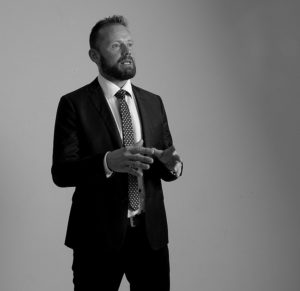
Be Unique: I’ve been working with organizations now just helping them really identify who they are and what their brand is.
I’ve been working with organizations now just helping them really identify who they are and what their brand is and trying to put themselves out in the marketplace as the authentic version of themselves in order to create that differentiation. As a result, I’ve done very well personally and also have helped lots of other companies. I’m at about 200 different organizations that I’ve worked with, not including some of those solopreneurs and coaches that I’ve consulted and coached. I have helped generate millions of dollars. That’s not as exciting as the fact that the companies that I’ve worked with have been able to put themselves in the marketplace in such a way that it makes them just feel true and authentic and not a representative of themselves. Their brand has turned out to be that way. Their personality is coming out in their brand. The organizational identity is in alignment with the brand and what the market perceives.
It’s just an amazing thing just to watch that transformation where you go from the tactical almost heady systemic approach when building businesses to seeing it actually evolve into this natural extension of the individuals that started it all. It’s just a beautiful thing. I know we’re saying be unique and differentiated and all that kind of stuff. I truly believe that every person that starts a company is already unique and differentiated. They just have to figure out how to communicate that message and put that into their culture, or their corporate identity and then into their corporate brand and then back out into the marketplace. That’s what I love watching.
A lot of times this is smaller startup businesses or solopreneurs but it’s still going to maybe be an entrepreneurial business but maybe a more sophisticated, more mature business. I’m not going to try to give an imitation of this, but I’m going to try to paint the picture and see if you recognize this. I meet people sometimes who want to complicate how they explain who they are. They use a lot of very buzzy words. Let me do a simple example. Let’s say somebody is a life coach but they don’t want to say they are a life coach because somehow in their mind, life coach has a negative connotation. They say, “I’m a proactivity coach. I’m a leadership coach. I’m an authenticity coach,” and would at least assess which talks about your signature story and getting you to do sales without being salesy. The more that they try to differentiate themselves in that way, from my perspective, it makes it more complicated for me to understand what is that exactly. I go to cocktail parties, sometimes there are mixers at an event and I’ll meet people and they use such complicated ways of describing what they do or who they are to the marketplace. It sounds really cool but I have no freaking idea what the hell they’re talking about. I’m hoping that what you’re doing is you’re helping people clarify the words. It’s like talking to a little child and explain something, it’s super easy to understand. I hope these kinds of people do this thing to get this outcome.
I think there’s a paradigm in business, whether it’s teaching people that are just getting out of corporate or just starting businesses, that’s saying you have to be so unique and so differentiated that when everybody hear it, they go, “That’s exactly what I want.” It’s all a big lie. From our mental perspective, what we do is we go, “He is just a… She is just…”
What are they trying to prove to me by saying that?
Exactly. If you’re a life coach, freaking own it. You’re a life coach. I am owning it fully and completely. If you want to differentiate, you say, “I’m a life coach that specializes in Y or in X.” We have a really fine-tuned BS meter subconsciously. If you actually align what you’re saying with what that person is thinking, then the BS meter doesn’t go off, and therefore trust increases. That automatically makes you unique right off the bat. You can own it, you say, “I’m a life coach. I specialize in this, and this is what I work with people.” What you resist, persists. If you’re resisting saying what you truly are in the business world and you’re trying to use gimmicky words or something to convey something, the person goes, “I don’t get it.” The reason that they say they don’t get it is because you’re trying to sound too buzzy, too unique. That comes off especially with bigger business people. People that have been more sophisticated and work with bigger businesses and stuff like that. They automatically see that as garbage. They go, “Why would I even bother listening to this person?”
Successful people can tell you exactly what they do in a couple of words.
Exactly, and they have no fear behind. This is one of the things I think is unique. The approach of Perceptual Positioning is the fact that I truly believe that it has nothing to do with what you say in terms of your uniqueness and how you communicate what you’re communicating. It’s who you are behind what you say in that moment. If you can be the best possible, most authentic version of yourself, even if you would bark and said the wrong words, the person is going to lean in and want to listen more because they feel the trust. They’re not getting all the BS that they’re hearing 99.9% of the time.
Is there something you’d be willing to do now, just like, “Here are three things to start helping you to clarify who you really are?” Is there a simple way for people to just go, “I wonder if I’m being authentic or not?”
This is the most simplest way. I believe that I personally have no idea who I am and what I’m capable of. I find my most trusted adviser, my most trusted friend, someone that would be completely 100% authentic with me and I ask them simply this question, “How do I have to act in order for you to feel that I’m being truthful? How do I have to act in this situation, if I’m going to be selling to you, in order for you to feel that I’m truthful?” If we’re going to be roleplaying a little bit, Aaron, I personally don’t know who I am and stuff like that. I’m going to pitch to you. You hear the pitch and then you go, “Stephan. That’s not you. This is you. Let me tell you how you should pitch, not what you should pitch but how.” ‘How’ is making sure that we’re communicating from a place that it feels like we’re just talking to someone across the table and it’s a friend. As soon as you actually create a business context, for some reason, the representative shows up and a whole bunch of crappy stuff comes out of someone’s mouth. Stuff that is not even them. They’re better when they go home, sitting across the kitchen table, talking about and saying, “Here’s what I do,” type of thing. If you, as a trusted adviser, were to look at me and say, “Just drop the buzzy words. You are able to tell me more of what is untruthful than me being able to pick it up for myself.” I always go through this process as, “How do my friends see me? What do I have to do in order to show up for you?” If I ask that question of my most trusted adviser, they always have an answer.
I think that’s part of why it’s so valuable, for instance if you’re in sales to record sales calls and listen to the conversation, because you don’t often remember exactly what you were saying in the conversation. You listen back and you go, “Why did I do that? Why did I say that?” When we hear ourselves back or watch ourselves on video tape, we notice things that we don’t realize we’re doing. When you watch yourself, you can tell when you’re not showing up the way you would like to show up.
The most important thing to pay attention to is when everybody says, “What are the words that I use in order to try to convey something?” It’s never about the words. It’s really about how you feel. If I’m feeling comfortable, then you’re going to feel comfortable. If I’m feeling like I’m trying to convince you, then you’re going to feel like I’m trying to convince you. If I feel that, “I’m just sharing because I love to share what I’m sharing,” then you’re going to feel that you’re being loved with the information that is being shared. I think that is a big, big, missing piece in business today. When we’re going out there and we’re talking to people and communicating our value or communicating whatever, is that we have to go into the state of mind that we want our prospects to experience. That will allow us to then tap into words that seem magical to the people that are listening.
It’s really interesting when we hold the mirror up to ourselves or allow somebody else to hold the mirror up. I’ve seen that on some of these fashion shows. You’ve got to stand in front of three mirrors and you see all elements of your front and back. You see every little flaw. Sometimes it’s not very pleasant but it helps us to make effective change. That’s what I hear you saying is that when we’re willing to be vulnerable enough to let somebody give us some feedback and how are we showing up. I like that, “How do I need to show up so that you feel like I’m being truthful?”
Imagine doing that with leadership teams.
We’re talking about people being shackled and I wonder, what are the keys to becoming unshackled? What are these great guests that we bring on, these people who are having success out there and who are teaching others to have success, what are the things that give them the keys to unlock those chains? The first question I’m going to ask you is an easy one. Is there a book that you would recommend? Anything that would help people understand better what you do. It could be a book that you’ve written or one that you love or something else that you think would really help people get in the mindset where they can start being open to having that mirror held up, starting to figure out how to differentiate themselves.
My number one most favorite book of all time is The Science of Getting Rich by Wallace Wattles.
Why do you love that book so much?
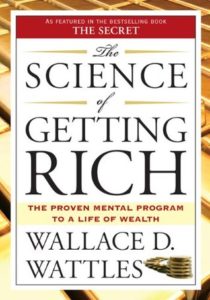
Be Unique: I love the book so much because every time I read it, I see a new layer or a level of truth within it.
I read it probably every two weeks. I love the book so much because every time I read it, I see a new layer or a level of truth within it. The fact that you can literally mathematically create success in your life just by following this simple way of thinking and looking at the world and behaving and acting is just fascinating to me. I actually like the idea of being able to rely on miracles in my life. I want to be able to have a practical step by step way to create miracles and I believe that The Science of Getting Rich does that.
Did anyone ever tell you the four chapters to focus on?
No.
Bob Proctor, Mary Morrissey, Les Brown, a lot of people have talked to me and I’ve shared this many times. You might want to try this little experiment since you’re an aficionado of the book. Chapters 4, 7, 11 and 14, what I do with people that go through my Unshackled Owner intensives, I have them read the book cover to cover and then read those four chapters. As you know, the chapters are about two to two and a half pages long. I have them read Chapters 4, 7, 11 and 14 every day. Read those ten pages every day for 30 days. If you miss a day, start over. I’ve seen it over and over and over again. Earlier in the podcast, I’ve talked about this book. I’ve talked about it in my talks, in my speeches and people come back and say, “I did your 30-day challenge and it changed my life.” I’m just going to wing that up to you. See what you think about it and we can absolutely compare notes later. Did you have another book besides The Science of Getting Rich?
The book Positioning is probably one of the best books in the world in comes to understanding how the Psychology of presence or subjective observation in the marketplace is. Positioning is a really, really good book. If anybody has not read that, they need to go out and get it now. It’s Jack Trout and Al Ries. The book is called Positioning, very fantastic book. It needs to be the staple of very small, medium and large business owners.
Here’s the second one, a little bit more challenging. I don’t want you to give the typical answer of, “I wouldn’t do anything.” If you could go back over the years and change something, if you could go back and do it over again, what would you change?
Now that I’m thinking about it, over the years, I’ve tolerated a lot of things and those tolerations in my life have actually left me to not grow as efficiently and as effectively as I would like. It could be things like I tolerate my office to be messy even though it bugs me. It could be as complex as I tolerate the fact of having conversations and tolerating people around me that are not fully authentic.
You’d sweep them from your life or what would you do?
Definitely. At this point, one of the keys to success for me has been the fact that I recognize on a day-to-day basis all the things that I’m tolerating and I systematically get rid of the things that are tolerating. It doesn’t matter what it is, I just want it out my head so that I can be an energetic flow. That’s what I would have changed. I would have changed all the things that I tolerated and I tolerated a lot of stuff about myself and other people in the past.
Do you have a favorite quote or a song lyric that guides you?
I do. It’s been sitting on the top of my desk. It’s been here going on to twenty years now. It’s by Patanjali, the guy who wrote the Yoga Sutras. The quote is, “When you’re inspired by some great purpose, some extraordinary project, all your thoughts break their bonds. Your mind transcends its limitations. Your consciousness expands in every direction and you find yourself in a new, great and wonderful world.” This is my favorite part, “Dormant forces, faculties and talents become alive and you discover yourself to be a greater person by far than you’ve ever dreamed yourself to be.”
That is a beautiful quote. It’s a long quote but I love it. It makes me want to go out and by the Yoga Sutras. I’d love it if you’d share any parting wisdom about really focusing on what you’re great at. Something you think that everybody should hear. Then how can they reach you, if you have any way for them to engage with you if you’ve got a free eBook or something, anything like that you want to offer to people, this is the time to do it.
The parting words is building business and being unique is not difficult because it’s not difficult to be yourself. The number one thing that I can share with everybody is that we just need to start being who we are every single context of life, including business. The people that you are going to engage and do business with are going to love you for who you are and they’re going to want to do business with you. I believe that people do business with the person first and then the product and service second. If you allow yourself to be 100% authentically you, you’re going to have more business and you know what to do with.
How can people reach you? I’m sure people are going to want to learn more.
Just from a purely business perspective, if they want to know if they’re competitive or if they actually have the uniqueness in the marketplace that will give them that competitive advantage, they should go to my Competitive Advantage Self-test. There are 101 things that you can look at for yourself and do a self-analysis to see whether or not you’re actually showing up in the marketplace in a way that allows you to be unique, which I call the position of the only, the only position. That’s CASelftest.com. If someone feels connected and wanting to connect with me, I have no problems in having a meeting with them. They can reach me at MeetWithStephan.com.
Stephan Stavrakis, thanks for being here, the founder and CEO of 3D Thinking and Training, how you differentiate yourself from the market so you don’t have any competition. You’ve given great words of counsel, great words of advice. Get these books, read The Science of Getting Rich and Positioning. Figure out who you are and what’s in your way, what’s hindering you, what are the things you’re tolerating? Let’s go out there and break those bonds so we can really become our true self. We can compete in the market in a way that makes us super unique. It’s a super critical part of becoming unshackled. That’s what the Unshackled Owner podcast is all about. I look forward to being with you again real soon. This is Aaron Young for The Unshackled Owner Podcast.
Links Mentioned
- Stephan Stavrakis
- Project Management Institute of British Columbia
- Perceptual Positioning
- The Science of Getting Rich
- Positioning
- Yoga Sutras
- Competitive Advantage Self-test
- MeetWithStephan.com
- AaronScottYoung.com
- The Unshackled Owner Twitter
- The Unshackled Owner Facebook
- Aaron Scott Young LinkedIn

